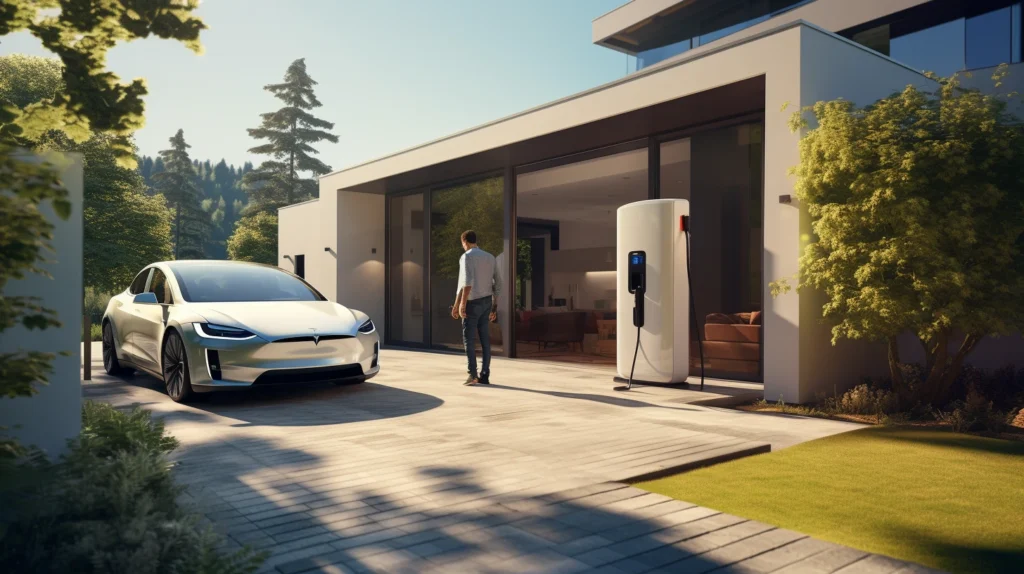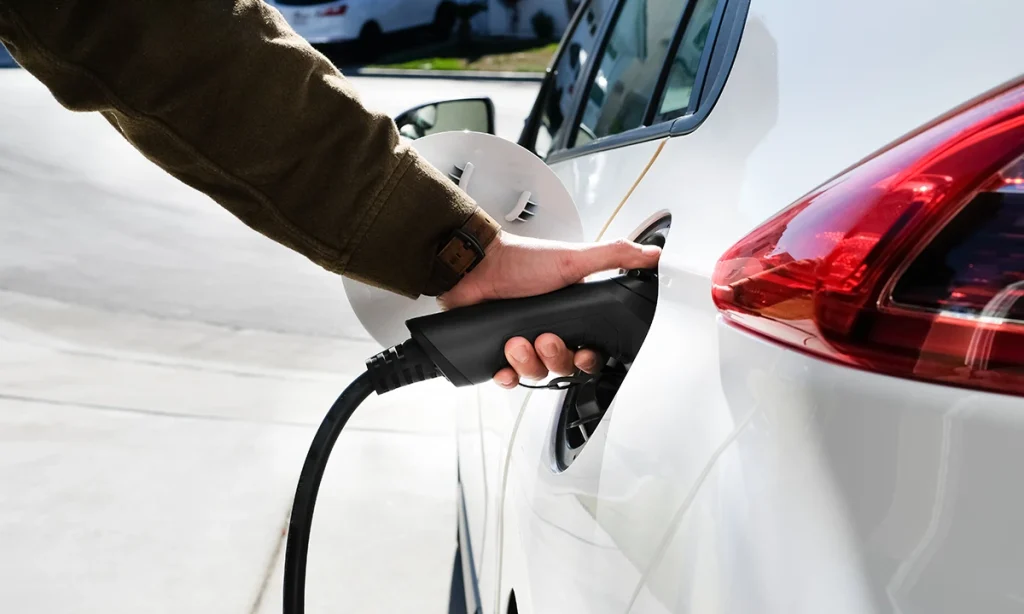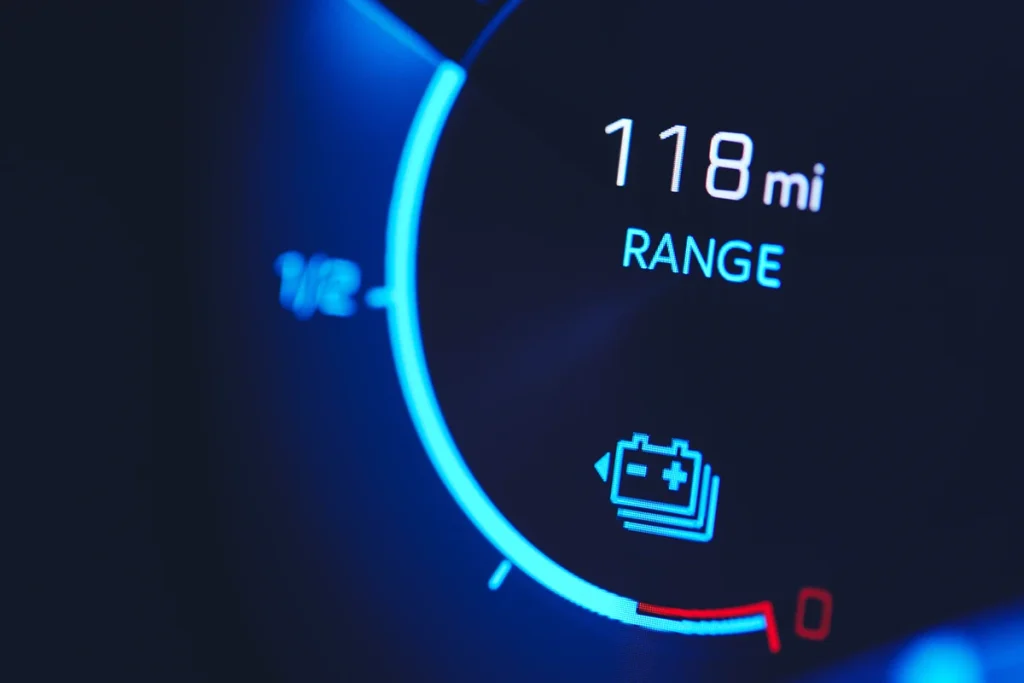If you’re considering a switch from a gasoline-powered vehicle to an electric one, charging time should be a top consideration. Understanding how long it takes to charge an electric vehicle (EV) at home is crucial, but unfortunately, there’s no one-size-fits-all answer. If you find yourself asking: “How long does it take to charge an EV at home?”, we’re here to answer that and a lot more!
The charging time can vary significantly, ranging from as little as 45 minutes to as long as 40 hours or even more at home. If you have a typical 7kW charger at home, it usually takes 4 to 8 hours to charge your car fully. Numerous factors come into play, including the EV’s charging capabilities, battery capacity, charging equipment, ambient temperature, and more. Manufacturers often provide estimates with cautious language like “as little as” to account for these variables.
Factors That Get the Charging Wheels Spinning
Before we dive into the nitty-gritty of charging times, let’s shed some light on the factors that rev up the charging process.
Battery Capacity: Size Matters
The battery capacity of an EV is a critical factor that impacts how long it takes to charge an ev at home. The larger the battery capacity, the longer it takes to charge. EVs with larger batteries generally offer a longer driving range but also require more time to charge fully. On the other hand, EVs with smaller battery capacities can be charged relatively quickly.
EV Charging Equipment: The Power Players
The charging equipment used at home plays a significant role in determining the charging time. There are three primary levels of EV charging:
- Level 1 Charging: This is the slowest charging method and involves plugging the EV into a standard household outlet (120 volts). Level 1 charging typically adds around 2 to 5 miles of range per hour. It is suitable for overnight charging when time is not a constraint.
- Level 2 Charging: Level 2 charging utilizes a 240-volt circuit and requires a dedicated charging station installed at home. This method is considerably faster than Level 1 charging and provides around 10 to 30 miles of range per hour. Level 2 charging stations are commonly found in residential garages and parking areas.
- Level 3 Charging (DC Fast Charging): This is the fastest charging option available for EVs and is typically found at public charging stations. Level 3 charging can replenish 60 to 80 miles of range in just 20 minutes. However, it requires specialized equipment and is not commonly installed in residential settings.
State of Charge (SOC)
The state of charge refers to the current battery level of an EV. Charging times can vary depending on whether the battery is completely depleted or partially charged. It takes longer to charge an EV from 0% to 100% compared to charging from 20% to 80%, for example. This is because charging slows down as the battery approaches its maximum capacity to protect its lifespan.
The Average Charging Time for Most EVs: Unveiling the Charging Secrets
EV charging times will vary depending on the factors discussed above, but a general estimate is given below.
For Level 1 charging, which utilizes a standard household outlet, it can take 8 to 20 hours to fully charge an EV with a typical battery capacity of around 60 to 100 kWh. This method is ideal for overnight charging, allowing the vehicle to charge by the morning fully.
Level 2 charging requires a dedicated charging station and is considerably faster. With a 240-volt circuit, it can take around 4 to 8 hours to charge an EV with a similar battery capacity fully. This makes Level 2 charging more convenient for daily charging routines, allowing for a full charge within a typical workday.
It is essential to note that these charging times are approximate and can vary depending on the specific EV model, battery capacity, and charging equipment used. Some high-end EVs with larger battery capacities may require longer charging times, while smaller EVs with smaller batteries may charge more quickly.
Supercharging Your Charging Experience: Tips and Tricks
Who doesn’t love a good hack? There are a few strategies EV owners can employ to optimize charging time and improve overall charging efficiency:
1. Time-of-Use Charging:
Keep an eye out for special utility company rates during off-peak hours. Charging your EV when electricity demand is low can save you some green and speed up your charging time.
2. Battery Management:
Be a master of battery management! Charging to 80% instead of 100% can save time and protect your battery’s well-being. Charging slows down near full capacity, so give your battery a breather and charge smartly.
3. Upgrading Charging Equipment:
If you find Level 1 charging as thrilling as watching paint dry, it might be time for an upgrade. Level 2 charging stations can significantly reduce your charging times and offer fancy features for faster and more efficient charging. Charging in style has never been easier!
Future Improvements in Charging your EV at Home: Faster, Better, and More Electrifying!
As technology zooms ahead, we expect charging times to get even faster and charging solutions to become more efficient. The future holds promise for even more convenience and accessibility in EV ownership.
Charging your EV at home might require some patience, but with the right knowledge and planning, you’ll be zipping around town in your fully charged EV in no time. The electrifying revolution is here to stay, and it’s time to plug in and embrace the power of electric vehicles!


